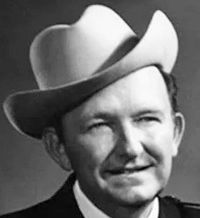A Quote by William Hazlitt
Of all virtues, magnanimity is the rarest. There are a hundred persons of merit for one who willingly acknowledges it in another.
Related Quotes
Patriotism is proud of a country's virtues and eager to correct its deficiencies; it also acknowledges the legitimate patriotism of other countries, with their own specific virtues. The pride of nationalism, however, trumpets its country's virtues and denies its deficiencies, while it is contemptuous toward the virtues of other countries. It wants to be, and proclaims itself to be, "the greatest," but greatness is not required of a country; only goodness is.
Imagine how our own families, let alone the world, would change if we vowed to keep faith with one another, strengthen one another, look for and accentuate the virtues in one another, and speak graciously concerning one another. Imagine the cumulative effect if we treated each other with respect and acceptance, if we willingly provided support. Such interactions practiced on a small scale would surely have a rippling effect throughout our homes and communities and, eventually, society at large.
Obstinacy, sir, is certainly a great vice; and in the changeful state of political affairs it is frequently the cause of great mischief. It happens, however, very unfortunately, that almost the whole line of the great and masculine virtues--constancy, gravity, magnanimity, fortitude, fidelity, and firmness--are closely allied to this disagreeable quality, of which you have so just an abhorrence; and in their excess all these virtues very easily fall into it.
Humility is the mother of all virtues: the humble in spirit progress and are blessed because they willingly submit to higher powers and try to live in harmony with natural laws and universal principles. Courage is the father of all virtues; we need great courage to lead our lives by correct principles and to have integrity in the moment of choice.
The aim of education is to guide young persons in the process
through which they shape themselves as human persons-armed with knowledge, strength of judgment, and moral virtues-while at the same time conveying to them the spiritual heritage of the nation and the civilization in which they are involved.
A Hundred Years From Now Well a hundred years from now I won't be crying A hundred years from now I won't be blue And my heart would have forgotton she broke ever vow I won't care a hundred years from now Oh, it seem like yesterday you told me You couldn't live without my love somehow Now that you're with another it breaks my heart somehow I won't care a hundred years from now * Refrain Now do you recall the night sweetheart you promised Another's kiss you never would allow That's all in the past dear it didn't seem to last I won't care a hundred years from now * Refrain
It may be a mere patriotic bias, though I do not think so, but it seems to me that the English aristocracy is not only the type, but is the crown and flower of all actual aristocracies; it has all the oligarchical virtues as well as all the defects. It is casual, it is kind, it is courageous in obvious matters; but it has one great merit that overlaps even these. The great and very obvious merit of the English aristocracy is that nobody could possibly take it seriously.
We do not very often come across opportunities for exercising strength, magnanimity, or magnificence; but gentleness, temperance, modesty, and humility, are graces which ought to colour everything we do. There may be virtues of a more exalted mould, but... these are the most continually called for in daily life.




































